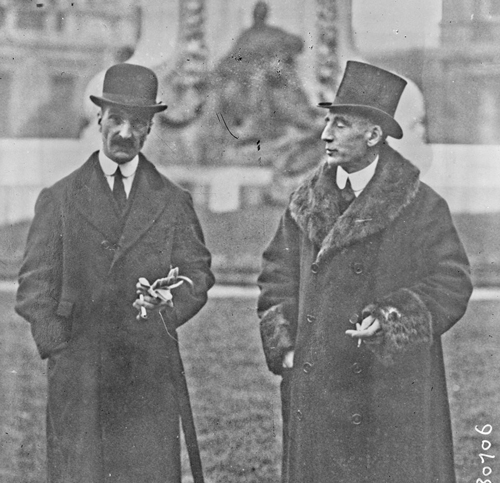Labour Party condemns Free State policy of reprisals as uncivilised
Dublin, 1 February 1923 - The Labour Party yesterday moved a motion calling upon Dáil Éireann to condemn the ‘policy and practice of reprisals as immoral, unjust, and unlawful’ and ‘that it ought not to be tolerated in a civilised community.’
The party’s leader, Mr. Thomas Johnson, explained that the motion was being put forward in response to a worrying proclamation that had appeared in yesterday's morning newspaper, purportedly coming from Major General D. Hogan, General Officer of the Dublin Command. The proclamation was in regard to the kidnapping of Senator John Bagwell who is General Manager of the Great Northern Railways.
Bagwell was seized by armed forces, taken from his home in Howth and removed to an unknown destination. A warning was then issued that should Senator Bagwell’s captors fail to release him unharmed in the next 48 hours, punitive action would be taken against several associates in the conspiracy who were already in custody.
In his reply to this statement Mr. Johnson remarked that this would mean that punitive action would be taken not against the culprit but against ‘other people, who are presumed to have known something about this conspiracy.’ Mr. Johnson continued: ‘I want to say that no civilised people, and no Legislature of a civilised State can defend this doctrine of reprisals, and that is what is meant here. Somebody commits an offense, and somebody else must suffer for it, because, forsooth, the Executive arm is not capable of bringing to justice, or what purports to be justice, the offenders.’
Mr. Johnson’s Dáil colleague, Cathal O’Shannon, added if there was one act above all that had served to sow distrust in the Government of the Irish Free State, it was the act of reprisal.
‘I associate myself most heartily with Deputy Johnson's denunciation of the spirit behind those reprisals, because it is nothing short of a reprisal, and is unworthy of a civilised people. It may be said there are a great many in Ireland who are not civilised.’
In direct response to the proclamation, Mr. O’Shannon put it to the Dáil: ‘Does anyone seriously believe that the duty of any Government is to punish somebody who has had no active part in this kidnapping, instead of taking such measures as would prevent kidnapping.’
Since the issue of the proclamation and the discussion around it in the Dáil, Senator Bagwell has been set free. He was picked up unharmed by passing motorists on a road near Swords and brought to the city where he had a lengthy interview with president Cosgrave. On leaving the Kildare Street club where they had met, President Cosgrave told reporters that the Senator had given him no information as to where he had been taken or how he had been set free.
[Editor's note: This is an article from Century Ireland, a fortnightly online newspaper, written from the perspective of a journalist 100 years ago, based on news reports of the time.]





















